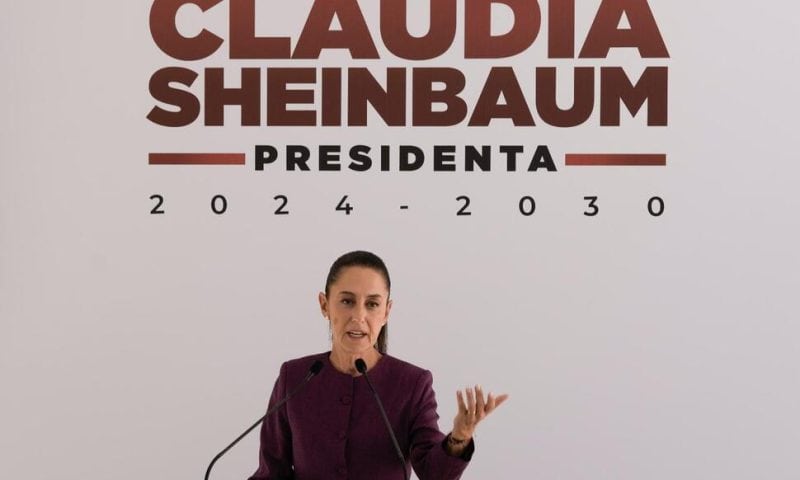The Mexican peso has continued to weaken as Mexico’s outgoing president _ and his successor _vowed to forge ahead with some 20 constitutional changes that have rattled investors
MEXICO CITY — The Mexican peso continued to weaken Tuesday as Mexico’s outgoing president — and his successor — vowed to forge ahead with some 20 c onstitutional changes that have rattled investors.
Claudia Sheinbaum won this month’s presidential election. But she has spent much of the time since then trying to reassure markets, while yielding not an inch on a controversial proposal to make judges and justices stand for election.
Sheinbaum claimed Tuesday that “investors have no reason to be concerned,” adding “to everyone who invests in Mexico, I say that (legal) certainty exists.”
Critics have claimed that outgoing President Andrés Manuel López Obrador wants to eliminate regulatory and oversight agencies and weaken the judicial system to reduce any checks on presidential power.
Sheinbaum said Monday she endorsed submitting all of López Obrador’s reforms when Congress returns in September. Sheinbaum even added a couple more yet-unfunded benefit programs to the list of proposed Constitutional changes.
The peso declined by about 1% Tuesday to close at 18.49 to $1. The Mexican currency has dropped about 11% in value against the dollar since late May, especially after the June 2 elections. Mexican stocks closed unchanged Tuesday, but remain about 4% below pre-election levels.
Sheinbaum belongs to López Obrador’s Morena party, where he remains a far more influential figure than her, and thus she has little room to argue for reconsidering or putting off any of the changes.
López Obrador himself went even further Tuesday, claiming the market jitters were being stirred up by a dark conspiracy among Mexico’s elite, rather than legitimate investor concerns.
“They were very accustomed to blackmail,” López Obrador said. “’You had better preserve my privileges, because if you don’t, there is going to be capital flight, there is going to be a devaluation,” he said, paraphrasing the purported conspirators.
Never one to back away from a fight, López Obrador said he was more convinced than ever to start pushing the reforms through in September in Congress, where his Morena party has won the two-thirds majority needed to change the Constitution. López Obrador leaves office Sept. 30.
He and Sheinbaum have offered to hold informational meetings and discussions to “explain” the reforms, but without offer the possibility that would change any of them. And many of those they want to attend the meetings — universities and professional organizations — haven’t even heard of the proposed forums yet.
Rather than urging López Obrador to go slow on the reforms, Sheinbaum added a couple of benefit programs for women and school kids to the list of things she wants to see enshrined in the Constitution.
Markets are also concerned about Mexico’s current budget deficit equivalent to about 6% of GDP, and payments to the country’s debt-laden state-owned oil company, Pemex.
Mexico also continues to struggle with persistently high inflation of nearly 5%, despite high domestic interest rates of 11%. Those high returns on government securities — along with a surge in remittances — had tended to shore up the value of the Mexican peso over the last year. But a devaluation like this month’s is likely to make inflation worse.

